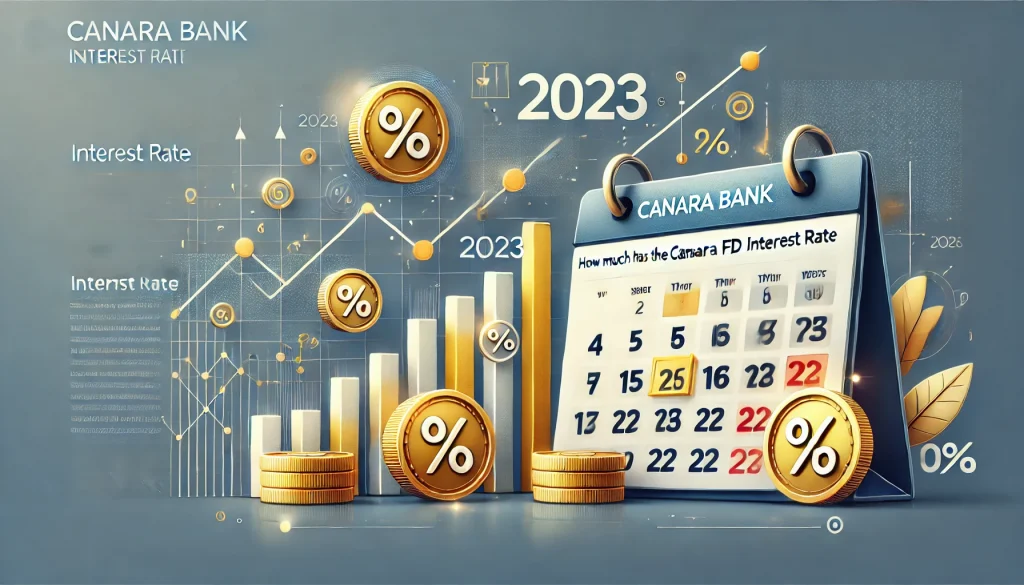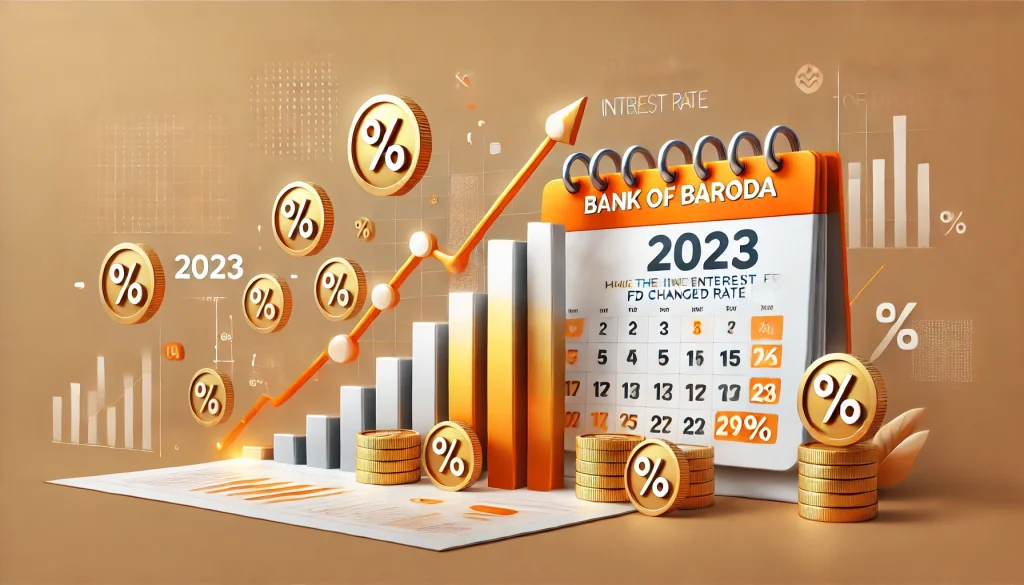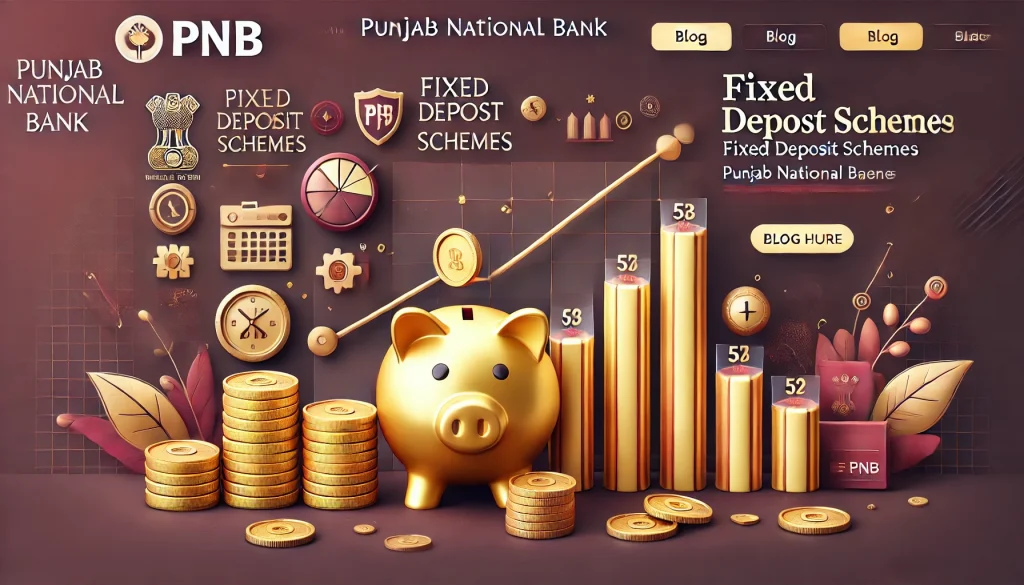
Investing your hard-earned money wisely is crucial to achieve financial stability and meet your future goals. While various investment avenues are available, fixed deposits (FDs) have long been popular for risk-averse individuals seeking stable returns. In this blog, we will focus on a specific type of FD known as a short-term fixed deposit and explore its features, benefits, and how to open an account.
Short-Term Fixed Deposit
A short-term FD is a fixed deposit scheme with a relatively shorter tenure, typically ranging from a few days to a few months. Unlike long-term FDs, which may have tenures of several years, short-term FDs allow investors to park their funds for a shorter duration while earning interest on their deposits.
Short-Term FD Interest Rates
Short-term Fixed Deposits offer attractive interest rates that vary depending on the bank or financial institution. The interest rates are generally higher than those offered by savings accounts but may be slightly lower than long-term FDs. It’s important to compare different banks’ interest rates to find the best option that suits your investment needs.
| Banks | General Citizen | Senior Citizen |
| ICICI Bank | 3% – 6% | 3.5% – 6.5% |
| SBI | 3% – 5.75% | 3.5% – 6.25% |
| Axis Bank | 3.5% – 6.25% | 3.5% – 6.25% |
| HDFC Bank | 3% – 6% | 3.5% – 6.5% |
| Canara Bank | 4% – 7% | 4% – 7.5% |
Features of a Short-Term Fixed Deposit
Short-Term Fixed Deposits have several features that make them a favourable investment choice for many. These features include:
1. Flexible Tenure
Short-term Fixed Deposits offer flexibility in terms of tenure, allowing investors to choose a duration that aligns with their financial requirements.
2. Fixed Returns
Unlike market-linked investments, short-term FDs offer fixed returns, providing certainty and stability to investors.
3. Low Risk
Short-term FDs are considered low-risk investments as they are not subject to market fluctuations and are backed by the deposit insurance guarantee provided by the government.
4. Easy Liquidity
Short-term Fixed Deposit have a fixed tenure but still offer relatively easy liquidity. Some banks may charge a penalty for premature withdrawals, so it’s essential to understand the terms and conditions beforehand.
Benefits of a Short-Term FD
Investing in a fixed deposit on a short-term plan can offer numerous advantages, including:
1. Capital Preservation
Short-term fixed deposit are ideal for individuals who prioritise the preservation of their capital while earning a stable return.
2. Quick Returns
With shorter tenures, short-term FDs provide investors with quick returns, allowing them to access their funds when needed.
3. Regular Income
Short-term FDs can be a source of regular income, especially for retirees or individuals looking for periodic interest payouts.
4. Diversification
Including short-term FDs in your investment portfolio provides diversification, balancing risk and returns when combined with other investments.
How to Open a Short-Term Fixed Deposit Account?
To open a short-term FD account, follow these simple steps:
- Step 1: Research – Compare interest rates and terms offered by different banks or financial institutions to find the most suitable option.
- Step 2: Choose the Tenure – Determine the desired tenure for your short-term fixed deposits based on your financial goals and liquidity requirements.
- Step 3: Visit the Bank/Branch – Visit the chosen bank or branch and inquire about their short-term FD offerings. Seek clarification on terms, interest rates, and penalties, if any.
- Step 4: Complete the Documentation – Fill out the application form and provide the necessary documents as per the bank’s requirements.
- Step 5: Deposit the Amount – Submit the investment amount by cash, check, or online transfer per the bank’s guidelines.
- Step 6: Confirmation and Receipt – Once the deposit is made, the bank will provide you with a confirmation and receipt as proof of your investment.
Eligibility Criteria
To open a FD account, individuals must fulfil certain eligibility criteria set by the bank. While the criteria may vary, common requirements include:
- Age: Usually, individuals above 18 years of age can open a short-term FD account. Some banks may have different age restrictions, so checking with the specific institution is best.
- Residency: Most banks require individuals to be residents of the country where they intend to open the account.
- KYC Compliance: Fulfilling the Know Your Customer (KYC) requirements is mandatory, which includes providing identity proof, address proof, and a recent photograph.
Documents Required
The following documents are required to open a fixed deposit account:
- Identity Proof: PAN card, Aadhaar card, passport, voter ID card, or any other government-issued identification document.
- Address Proof: Utility bill (electricity/telephone/water), bank statement, ration card, Aadhaar card, or any other government-issued address proof document.
- Passport-size Photographs: Carry a few recent passport-size photographs for account opening formalities.
Other Short-Term Investment Options in India
Apart from short-term FDs, several other investment options cater to individuals seeking short-term gains. These include:
1. Savings Accounts
While not an investment per se, savings accounts offer liquidity and a nominal interest rate on the deposited amount.
2. Recurring Deposits
Recurring Deposits are ideal for individuals looking to invest small amounts at regular intervals while earning fixed returns.
3. Liquid Funds
Mutual funds that invest in short-term debt securities offer the potential for higher returns compared to traditional savings accounts.
4. Treasury Bills
Short-term government securities are issued with a fixed tenure and lower risk.
Conclusion
Short-term fixed deposits provide a convenient and secure investment avenue for individuals seeking stable returns within a shorter timeframe. By understanding the features, benefits, and process of opening a short-term FD account, you can decide to diversify your investment portfolio and achieve your financial goals.
FAQs
Yes, the interest earned from Short-Term FDs is taxable as per the income tax slab rates applicable to the investor.
Yes, most banks allow premature withdrawal of funds from Short-Term FDs. However, this may attract penalties or reduced interest rates, so checking the terms and conditions beforehand is advisable.
Yes, many banks offer online account opening facilities for Short-Term FDs, making it convenient and hassle-free.
The minimum deposit required for a Short-Term FD varies from bank to bank. It can range from a few thousand rupees to a higher amount.
Yes, non-residents can generally open Short-Term FD accounts. However, specific terms and conditions may apply, so it’s advisable to check with the bank regarding their policies for non-resident account holders is advisable.
Disclaimer
This article is solely for educational purposes. Stable Money doesn't take any responsibility for the information or claims made in the blog.


